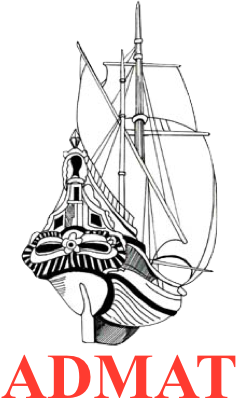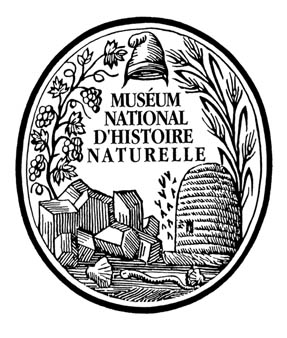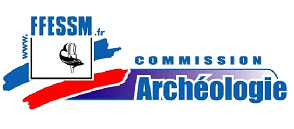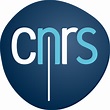Le Dragon 2020 Accommodation, Diving & Training
Due to COVID 19 the July project is delayed. Dates to be confirmed, hopefully October 2020.
Accommodation & Food
The project will be based at ADMAT's Maritime Archaeological Centre, in Monte Cristi on the north coast of the Dominican Republic.
Our Co-Ed facility has: two bunk rooms, with a common room/kitchen in the middle with the usual facilities, cooker, microwave, fridge, freezer and dining table. The tank room houses the inside conservation tanks, the wet lab and office area.
The Centre has sheets, pillows, towels and blankets for the beds, but you should bring two towels for diving with you. There is a commercial size washing machine and we hang the washing to dry it.
There are no house keepers at the Centre and so all participants will be required to help with basic chores and maintenance and when applicable walk the dogs, which are part of the team.
There is a mobile telephone which can receive incoming calls. Internet facilities are currently in town about 5 miles away or the local bars which are a mile away.
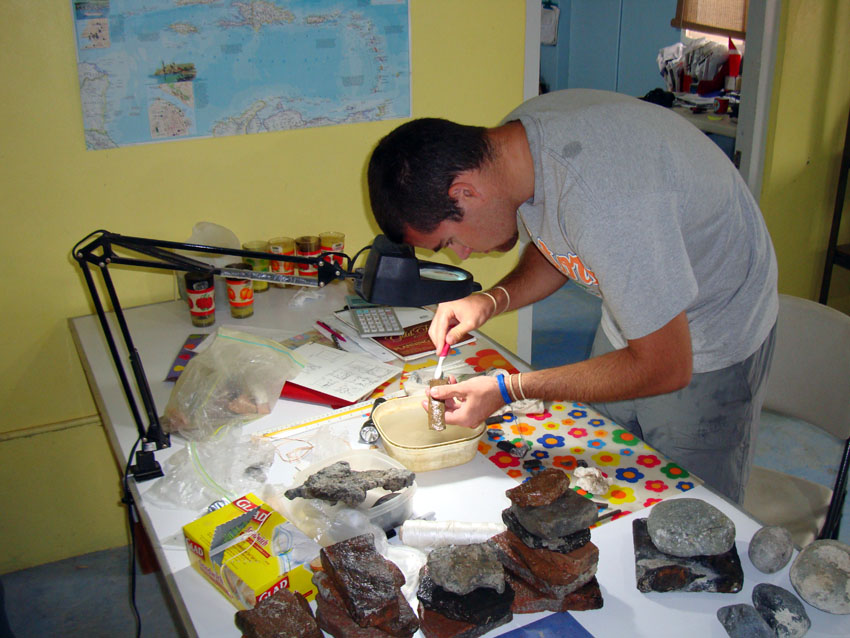
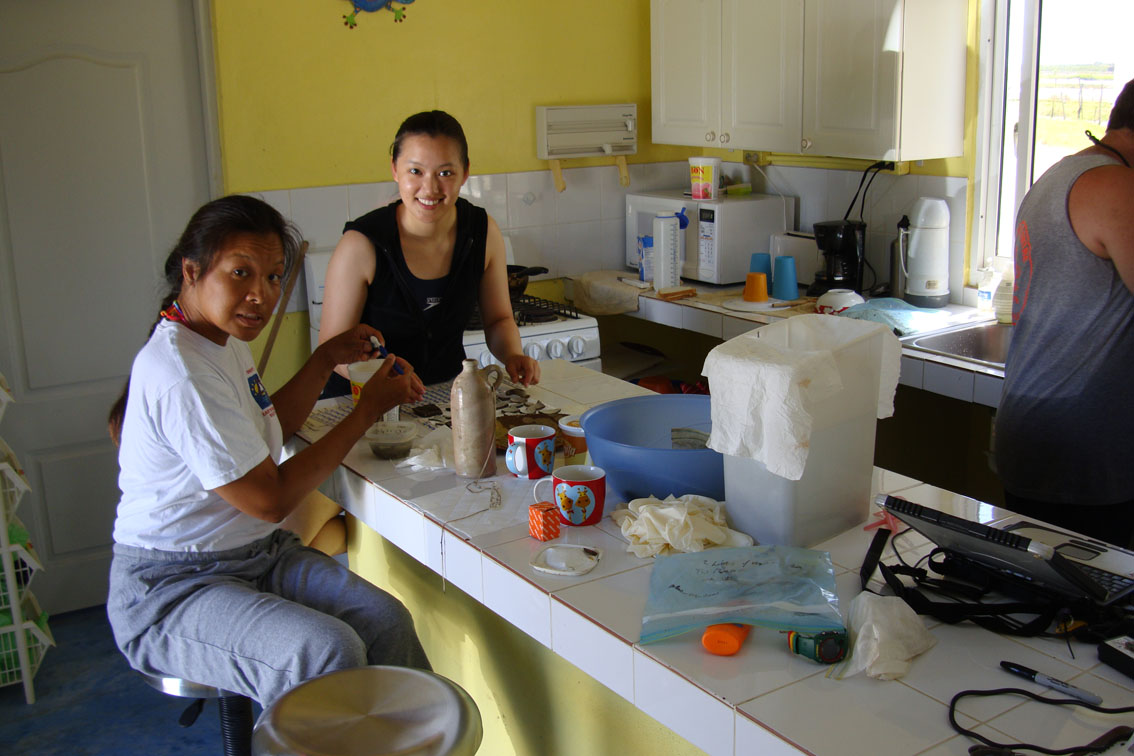
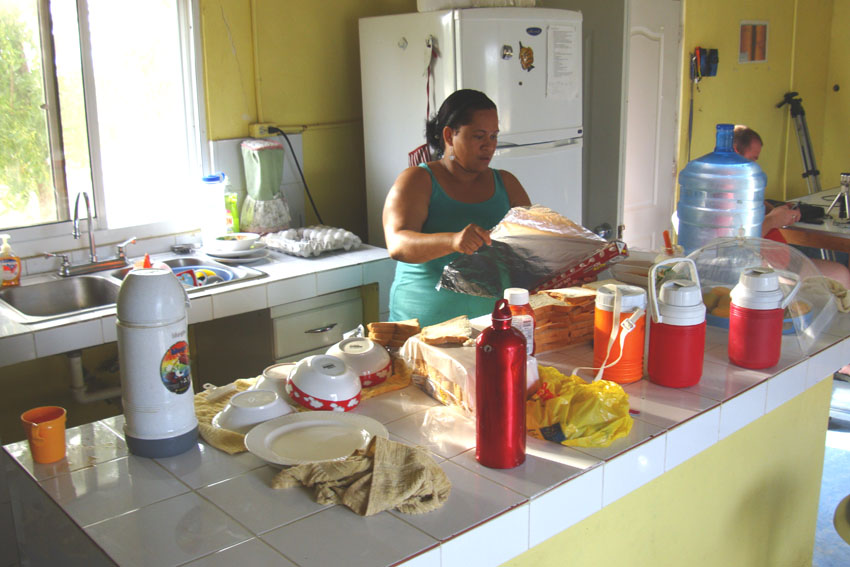
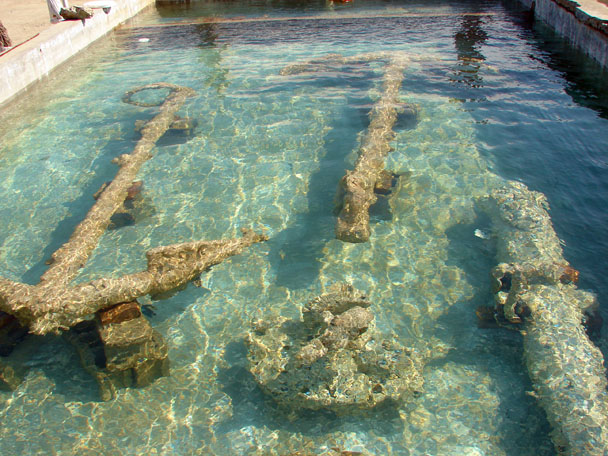
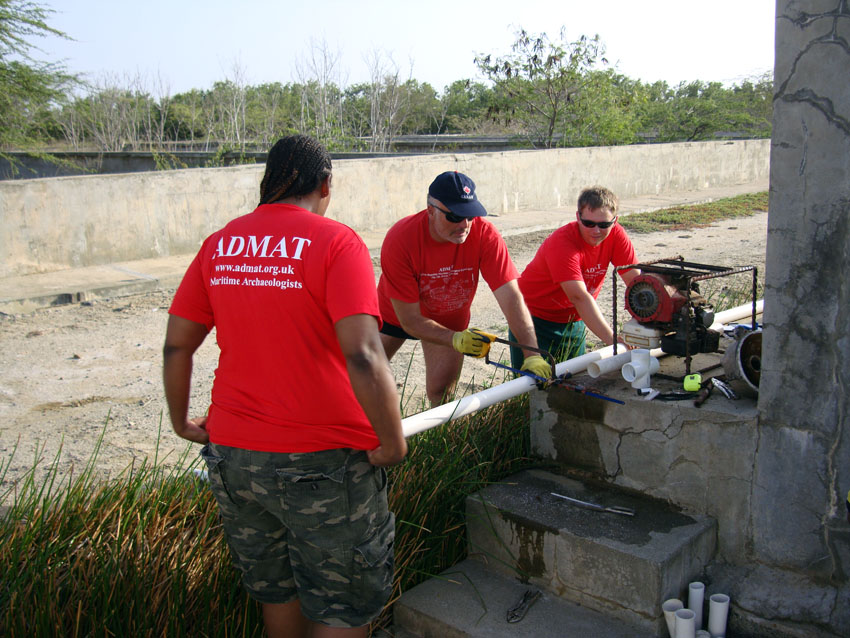
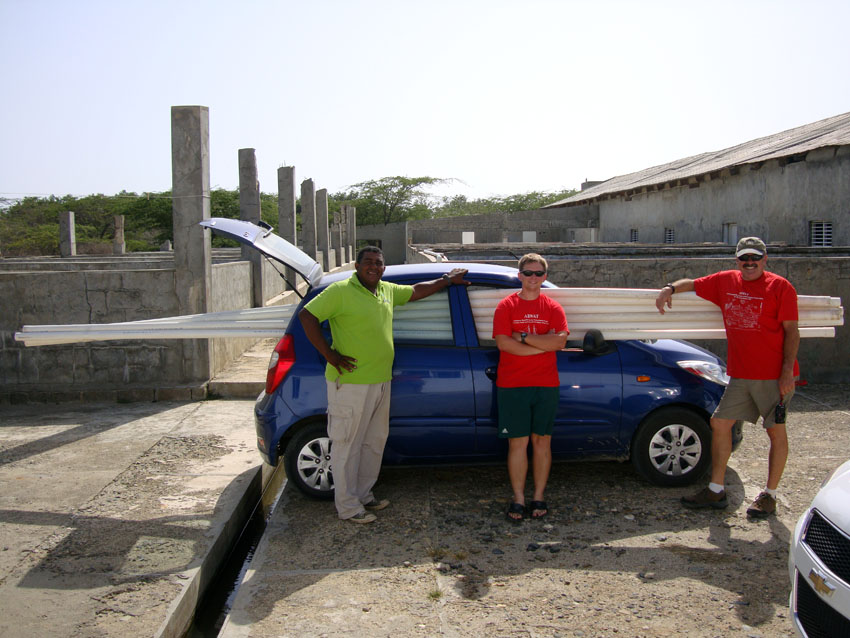
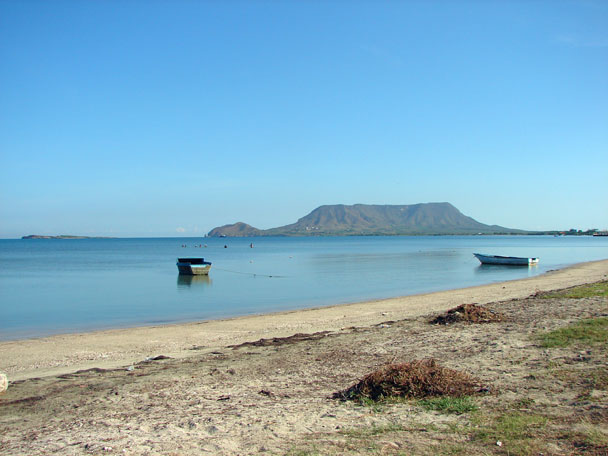
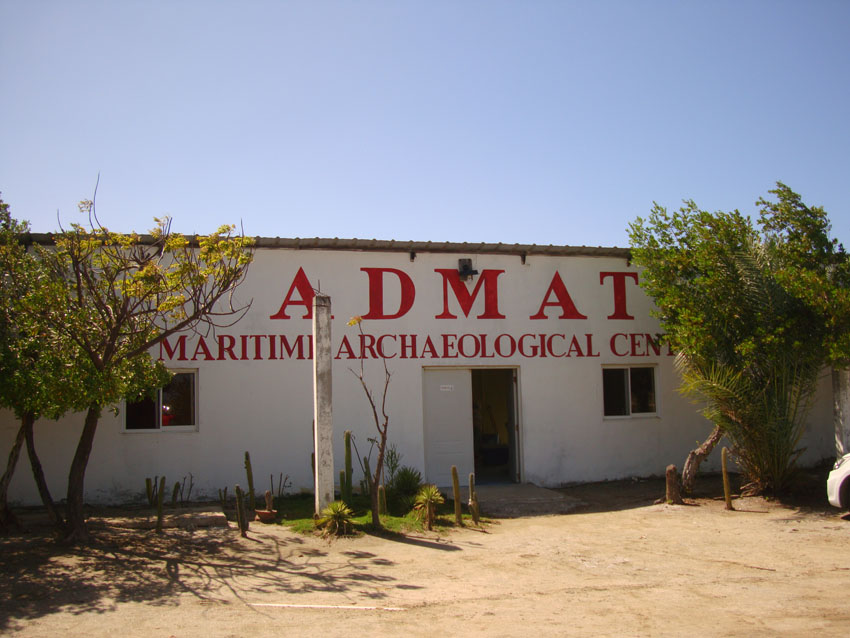
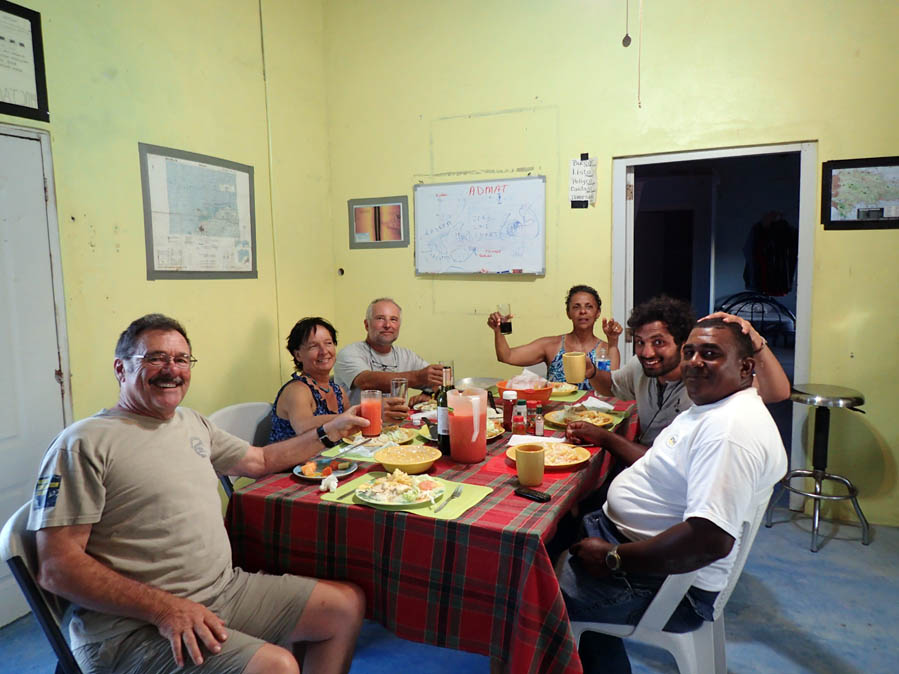
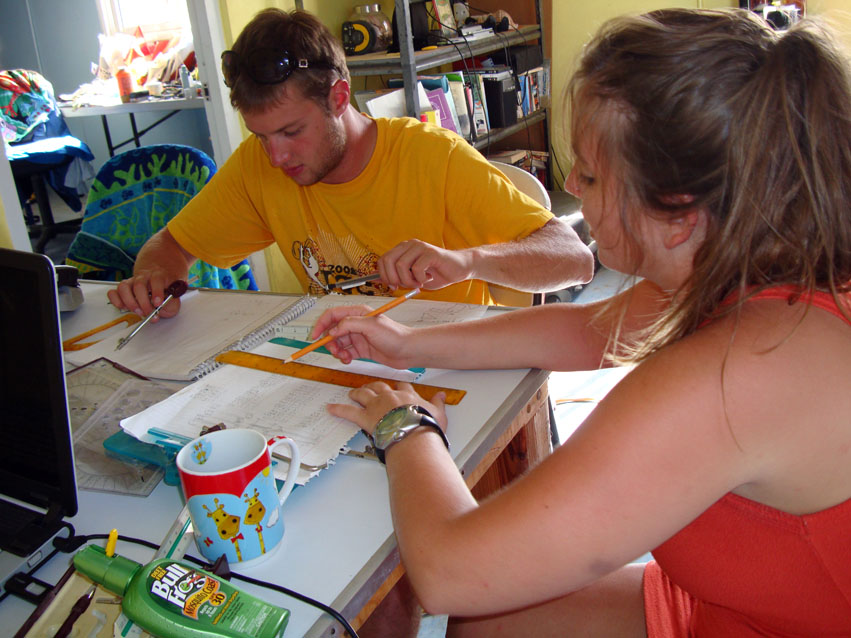
Food
A brief self service breakfast and a packed lunch for on the boat for those going on the boat will be provided. As there are not many local eating locations we will arrange a cook for the evening meals at the centre. There however a few good local bars, by the Monte Cristi beach front.
Diving
The field schools are on the basis of 2 weeks per field school. Unlike other field school projects, ADMAT believes that the participants should spend as many hours underwater as they are able. It is quite normal for the Team to dive 20-30 hours per two week project. If weather permits it should be possible to have about three hours underwater when the Team is on site. Le Dragon is located off the beach in shallow water around 2-4 meters depth. Whilst we are diving in water too shallow for the use of dive tables, we do document the time spent underwater as a matter of good dive principals. In addition the cumulative effect of so long underwater may create the situation where the diver may well be entering into potential saturation. We therefore have one day off diving in the middle of the project diving session or may phase the Team so that they have non diving days. Diving computers are required.
The Team will be driven to the site each day which will take approximatley 1.5 hrs. The Team will then walk out to the wreck site.
The ADMAT Diving Officer will be responsible for the diving. Full compliance with his instructions will be required. Due to Health and Safety it is a requirement that all students speak and read English.
Participants must have the following certification as a minimum, either: PADI Open Water, or BSAC Sports Diver (or the equivalent under another agency). Members will be required to send copies of their diving qualifications with their booking. Original log books or certification cards must be presented to the ADMAT Diving Officer on arrival. In addition the medical statement must also be presented upon arrival.
Please note: All divers must be fit for duty in the mornings. Under Health and Safety Regulations, anyone under the influence of alcohol will not be permitted to dive.
Training - What you will learn
During the entire project there will be oppertunities to maximise the training ands hours undertaking work which will further your learning skills.
Under Survey Diver Course, an ADMAT Speciality Course which has five levels. For PADI Divers it is also a unique PADI Speciality course. This course will be very hands on and you will learn how to construct a survey grid, as well as undertake survey dimensions of the lower ships hull. This will be followed by drawing your findings.
Proton Magnetometer Diver Course. This also is an ADMAT Speciality Course which has three levels. For PADI Divers it is also a unique PADI Speciality courses. Divers will be trained on how to use Aquapulse Metal Detectors as well as the Aquascan DX-200 underwater gradiometer. This is an excellent tool and much more flexible than the towed proton magnetometer.
Logistics. This is a key part of any maritime archaeological project and one which is only understood by practice.
Use of excavation techniques. The team will be using an archaeological water dredge on this project to uncover the sand which has in filled the sections of the ships hull.
Artefact handling. With any archaeological site the correct artefact handling methodologies must be in place and taught. All participants will be documenting the artefacts found on site as well as artefacts from The Tile Wreck which are currently undergoing conservation at ADMAT's Maritime Archaeological Centre.
When time permits or as a bad weather option, the Team may be taken to Santo Domingo for the day to visit the Governments maritime archaeological conservation lab ONPCS. This is a full day out but a fantastic chance to see ONPCS and the artefacts from other shipwrecks they are working on.
ADMAT's maritime archaeological work on this wreck site was assisted by ADMAT-FRANCE a non profit organisation based in the Institut de Paléontologie Humaine, Muséum National d’Histoire Naturelle, Paris.
ADMAT-FRANCE is a sub division of the Anglo ~ Danish Maritime Archaeological Team
ADMAT is delighted to have an association with Muséum Nationald’Histoire Naturelle at Paris, départememt Préhistoire, UMR-CNRS 7194.
